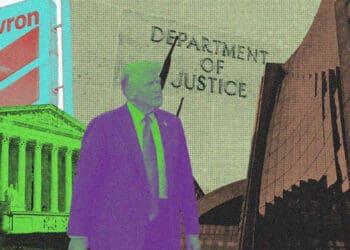Walgreens reached a settlement on Tuesday, concluding a six-year investigation into the company’s pharmacy and drug-pricing practices, initiated by a whistleblower and former pharmacy manager. CCI reports on the specifics of the case and the historic settlement.
The attorney representing the whistleblower in a historic case against Walgreens says the landmark settlement sends a clear message to compliance officers everywhere.
“Compliance officers, your job is vital,” said Andrew M. Beato of Stein Mitchell Beato & Missner LLP, speaking by phone Wednesday to Corporate Compliance Insights. “Compliance officers are the last line of defense (for a company) before it goes to this type of outcome.”
Walgreens will pay $60 million in the largest-ever settlement by a pharmacy chain for overcharging for drugs. Announced Tuesday, the settlement was the result of a complaint filed in 2012 by a former pharmacy manager in Florida.
Beato, who leads the Washington D.C.-based firm’s whistleblower practice group, represented whistleblower Marc D. Baker in the case, which was part of a six-year, multipronged investigation by the United States Attorney’s Office for the Southern District of New York and numerous State Attorneys General Offices into Walgreens’ pharmacy and drug-pricing practices.
Baker’s case concerned allegations the pharmacy chain was offering customers discounted prices on prescriptions while failing to disclose the discounts when seeking full reimbursement from Medicaid. Walgreens will also pay $209.2 million to resolve claims it improperly billed Medicare, Medicaid and other federal programs for insulin pens prescribed from 2006 to 2017.
The cases were settled under the qui tam provision of the federal False Claims Act (FCA), which includes incentives that encourage whistleblowers to report fraud in exchange for confidentiality and protection from retaliation.
A successful case under the FCA also entitles the whistleblower to a percentage of the settlement. Baker will receive 21 percent of the amount recovered by the government.
Financial incentives can help offset the fact that whistleblowers often report at great personal and professional risk, he said.
“The vast majority of whistleblowers have exhausted compliance procedures and have done everything they can to try to change a bad practice internally, before they ever decide to take the next step and contact an attorney to help them,” Beato said.
Research backs up that assertion. Under the qui tam provision of the FCA, whistleblowers are not required to report internally before filing a lawsuit against employers, but a 2010 study published in the New England Journal of Medicine found that up to 82 percent of whistleblowers do so anyway.
Still, many companies either ignore or mishandle internal compliance complaints, in spite of independent research reviewing 15 years of data compiled by Navex Global that suggests companies with robust, anonymous reporting systems ultimately enjoy greater profitability and workforce productivity.
While the Walgreens whistleblower was a front-line employee, Beato says reports of company wrongdoing from compliance officers are not uncommon at his firm.
The SEC whistleblower program has a general prohibition for certain audit and compliance professionals from participating, but the prohibition does not extend to the FCA, IRS claims or Financial Institutions Reform Recovery and Enforcement Act (FIRREA).
“It’s very common that I receive contacts from internal compliance people who are in the difficult situation of having employees come to them (with allegations against the company), and in their function as a compliance officer they are embracing the problem and bringing it to the next level, but they’re not getting resolution or satisfaction,” he said.
If compliance officers lack the critical internal support they need to correct problems, they “shouldn’t hesitate to escalate or seek their own independent counsel,” he said.
The case referenced above is United States ex rel. Marc D. Baker v. Walgreen Co., 12 Civ. 0300 (JPO) (S.D.N.Y.). Andrew Beato’s team included Stein Mitchell Beato & Missner attorney Jed Wulfekotte and chief investigator Rory Kelly.



 Sarah Hadden is Publisher of Corporate Compliance Insights and CEO of CCI Media Group LLC. Hadden has more than two decades of experience as a journalist, editor and marketing consultant. She previously was Lifestyle Editor for the Arlington News; a contributing writer for the Dallas Morning News; Managing Editor of the Collin County Business Journal; and Managing Editor of the Star Community Newspapers group in Dallas, Texas. Hadden also served as Senior Account Executive in the Atlanta office of Hill & Knowlton Public Relations, specializing in corporate media training, crisis communications and health care.
More recently, Hadden is Founder and Managing Director of Words & Pictures, a marketing agency offering SEO consulting and web design for lawyers, executive recruiters, consultants and other professional service providers. She has managed and overseen the daily operations of CCI since 2012 and became CCI’s owner and publisher in January 2019.
Sarah Hadden is Publisher of Corporate Compliance Insights and CEO of CCI Media Group LLC. Hadden has more than two decades of experience as a journalist, editor and marketing consultant. She previously was Lifestyle Editor for the Arlington News; a contributing writer for the Dallas Morning News; Managing Editor of the Collin County Business Journal; and Managing Editor of the Star Community Newspapers group in Dallas, Texas. Hadden also served as Senior Account Executive in the Atlanta office of Hill & Knowlton Public Relations, specializing in corporate media training, crisis communications and health care.
More recently, Hadden is Founder and Managing Director of Words & Pictures, a marketing agency offering SEO consulting and web design for lawyers, executive recruiters, consultants and other professional service providers. She has managed and overseen the daily operations of CCI since 2012 and became CCI’s owner and publisher in January 2019. 









